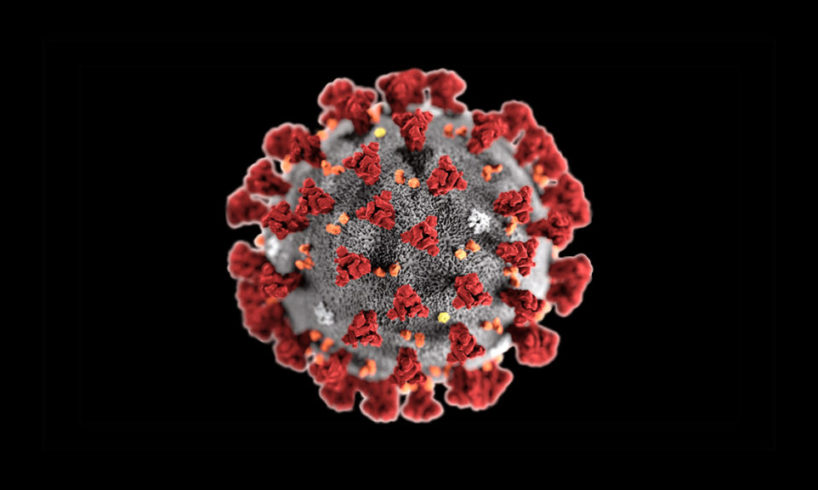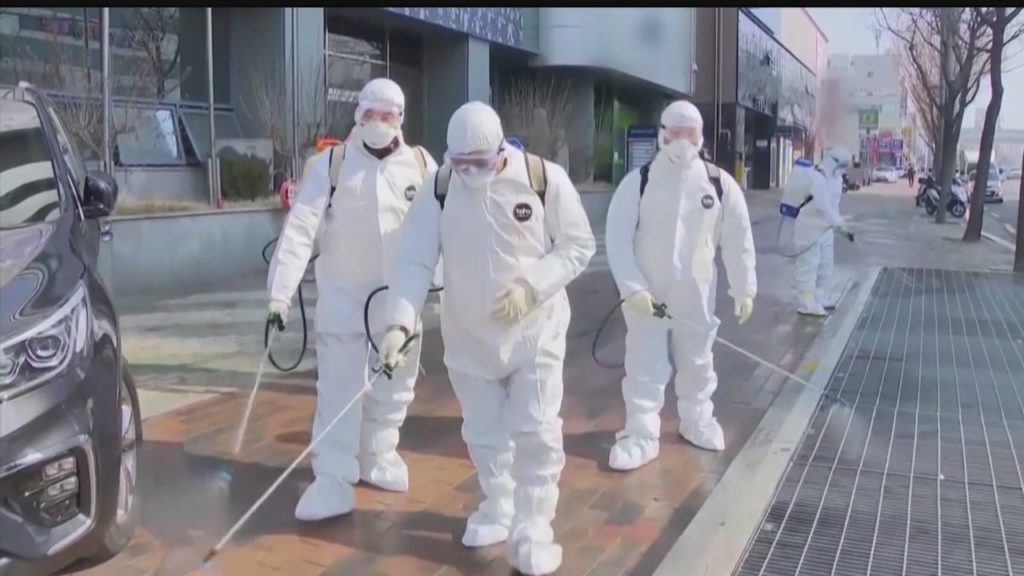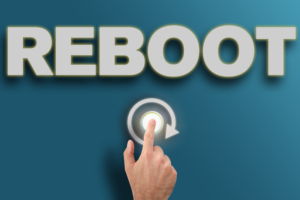
It is a three-month-old Chinese story with an epicentre of Wuhan, the scary Coronavirus has moved now across continents and penetrated deep into every single country of the world with the varying degree of damages to several economies of the world. The US becomes the new epicentre in the western hemisphere. Many developed nations of the world probably never imagined the kind of catastrophic effects and wounds it can create and scars it can leave in terms of millions of infections and mortality world over. The world gigantic economies like the USA, Germany, the UK and all parts of Europe have tumbled in no time, unable to save lives. The virus has played havoc irrespective of economic status and hygiene conditions prevailing. The rich and poor had the same degree of fear of death. The world was masking to save itself and the demand for hygiene products like sanitizers, masks and hand rubs grew a hundred times resulting in a tremendous shortage. Covid19 as a disease is unstoppable as there is no vaccine and all sort of drugs were experimented globally to contain the spread. The gestational effects of the virus on various surfaces ranging from 3 hours to 72 hours made it impossible for the world to sanitize right from doorknobs to everything you see, touch & feel.
The new terminologies like social distancing, quarantine, community spread, herd immunity, hot spot seal etc, came under the topic of “ locked down” economies. Almost, all parts of the world big or small came under a Cease with no people movement, vehicular movement and all the commercial capitals collapsed and stay home, ‘stay safe’ become the mantra across the globe. It may not be an exaggeration to state that for the first time the powerful economies become powerless and helpless, witnessing mortality and infection right from the most affluent to the poor. The coronavirus crisis will certainly cause the deepest economic crisis globally and India will not be an exception. This crisis may push back the world economy minimal by a decade.

While I am writing this article, the viral effect has not relented at all. But surely every single country has learnt lessons from the same. Now, it is a known fact that even the developed nations don’t have disaster management in place when it comes to public health. A point three-micron organism can threaten thousands of trillion-dollar economies and bring them down on their knees. Even, knee jerk reaction is impossible in these situations. A few management lessons which may be of interest to the readers are listed below.
Author of this article – Dr.C.N.Narayana
CVML1-Material may not be the real indicator of Wealth
The world witnessed the spread of the virus from China to Europe, then to the USA. These countries which were worst affected included the USA, Italy, France, China, Germany, UK, Iran, Japan are economically sound countries. Their GDP levels compared to countries like India and some Asian countries were more than 15 to 20 times higher. However, these economies were unable to control the disease when it came to health services and disaster management. Money lost its power to buy even healthcare and life-saving processes. The world for the first time witnessed the powerless situation of valuable assets, bank balances. The frustration of the affluent yet helpless society resulted in heightening the effect of the geopolitics of blaming other countries related to trade issues at the pinnacle of viral spread. The greatest management learning in this situation is to remain calm and handle the situation effectively through consultative and support processes instead of blame games. When the existence in question economic stability cannot be the only answer for sure. The mental and physical health is more important in these corona times or the period of anxiety. Every country must realize that economy can always bounce back when you live tomorrow. Therefore, lockdown to strategically address the issue is in order.
CVML2-Business Unusual becomes Business as usual during lockdown
Working from home practised by certain MNC’s and IT sector was always questioned on the quality of output or productivity. Now, with the long haul of lockdown across the world, even the third world countries have to shift to working from home concept to ensure the optimal level of operations. Many of the meetings have become video-based conferences. The concept of connecting personally which was vouched for better productivity is under a review to see whether infrastructure cost can be minimized by looking at these remote operations through technology and management decision can be taken through technology. A good example comes from the educational sector. As the world is embracing longer haul of lockdown management educators (Academicians) who were opposed to the idea of flip and blended learning as a futuristic education model have quietly learning to teach through Zoom, Google Classroom and other technology-enabled classrooms and ability to adapt to the situation quickly. Harvard University and many other top-rated universities have announced free online education on various online portals in this lockdown period. There are many online free courses available now to promote online portals. Even the retail industry and localized groups have started using technology at different degrees to continue their business. The resistance has become accepted as necessity has become the mother of invention. Embracing technology and unusually doing business may become business as usual for future contingencies.
CVML3- Creativity and Connectedness with family for healthy and better living
The world is now appreciating the value of practices which had a genesis from the east like Yoga, and certain food consumption which may help to mitigate the risk. While, there is no scientific proof for any cure for COVID19, there are certainly attempts to promote other forms of medicines like homoeopathy, naturopathy, Siddha and Ayurveda. It is a known fact many of these especially Ayurveda and naturopathy do have immunity boosters which may help to reduce the spread of due to higher resistance of the body. But these need to be a regular practice like in the east than as a cure for the disease. Many across the globe under lockdown mode are learning new things related to their job or related areas. Many others are indulging in their childhood nostalgic activities or creativity, drawing, painting or pursue their musical interest from online portals or otherwise. Many are into fitness and household work, This is also bringing families together as many families have partners who are working in organizations or business and children who were longing for family time together are making the best use of cohesive leisure goals from home.
CNML4- Socio-Economic Changes Imperative
The very basis of economic driven society is under scrutiny now with the spread of coronavirus across the globe due to globalization Already both in the West and in the East eyebrows are raising whether people have to move to other countries or immigrate for work and settlement. Means, society may not only look at economic growth (material) but look beyond in terms of happy and safe living, social security measures to ensure saving the life of people rather than GDP alone. Even the religious sentiments which contradict the basic hygiene and behaviour pattern which will risk others life will also be under scrutiny for uniform civil laws across the nations. Society will focus more on safe and healthy living than affluence or luxury as the goal of life. Means, austerity and simplicity will be looked at even in the west in the future. Overkill of globalization concept may gradually fade and every country will focus more on local strength and growth and reducing dependency. The best example is in the coronavirus crisis the US needs to import Hydroxycloro Quinine from India with discomfort for India. But to maintain foreign relations this needs to be done. These changes will have a huge impact on professionals moving across the globe and diversity factor which gives a better edge for organizational performance. Exit and Entry barriers between nations may also change due to socioeconomic changes.
CNML5- Public Policy & Management
Countries which talked about social security measures through public policy changes and those who have not focused on health and education sector allocation sufficiently will have to revisit their management priority to meet these exigencies buy making required changes to focus on research on medical sciences and education, healthcare. Even those countries which have excellent public policies to support social security could not withstand this crisis, which indicates unpreparedness to manage disasters like this.
Developing countries must allocate more budget for these sectors and Developed countries must reallocate the portfolios for better research and predictable science and analytics to ensure basic life protection to citizens. The effectiveness of public policies to be frequently reviewed to forecast pandemic like coronavirus. The governments across the world must have plans to regulate and quick changes to handle situations in trade, business, regulatory measures to address the issues be it industry or even the education sector. Regulators need to be flexible taking strategic calls- Specific to Education, academia to ensure timely completion of degrees, convocations, alternate methods of teaching and evaluation etc.

Regulatory authorities to expedite the process of Approvals, Blended Learning drive and change management for Indian Management Education
As a management professor and an academician, my view will be a flexible approach towards easing out process through the online portal and technology-enabled courses and evaluation based on the last trimester or semester results to assess grading with a weighted average even without examining for the final year students who are graduating. Higher Education Regulatory bodies who were approving courses for PGDM/MBA through AICTE approval must quickly approve the same for those who have a good track record applying for new courses without delaying the process to avoid delay in starting the courses after investing in infrastructure and manpower.
Coronavirus is impacting just about every aspect of everyday life, including what and how we do, interact for work and with people across all walks of life. Management Education will have a huge impact in terms of their admission process. A few institutions who are big brands announcing that their admission is not affected may not be the reality when it comes to June 2020. It is possible to have a huge withdrawal at the last moment in PGDM courses. If those institutions which do not have a long waitlist will encounter problems too. On the other side, the PGDM institutions awaiting approval for 20-21 will have a bigger problem to handle as the admission process has not started. Only one or two entrance tests are left for the year and may get postponed. This will have a chain effect on management education and the time available for completion of mandated courses may get compressed as well. A quick decision from AICTE will help to improve the overall situation for PGDM courses.
Every Crisis in life teaches a few lessons. Some are positive and some are negative. Surely, this coronavirus has shattered the dreams of many economies to grow at a certain pace. It has resulted in pandemic mortality beyond anybody’s imagination. More importantly, the infection spread is beyond anyone’s expectation from people to people water droplets through a sneeze, cough and even a passing close to a person and finally airborne and staying in hard surfaces for a longer period and even airborne. Economies across the globe entered into the deepest recession witnessed in the last century. Migrant workers losing their lively food and job losses. After effect will surely be a huge job cut across sectors. Loss of saving to healthcare requirement and inflation resulting out of short supplies of consumption goods. Risk of mutation of the virus and extended second cycle possibility. The mental agonies of the society in tackling the monster and containment mechanism. I don’t subscribe to the view of a Divine orchestration but surely isolation and quarantine processes have brought the importance of freedom when you are locked down. There is a greater realization of humanity beyond religion and material wealth which are not able to protect lives from this deadly virus.
On the positive side of the crisis the first one ability to quickly change in uncertain times, perspective change in the way operate and approach work. Work from home concept, Online education and learning and evaluation process. Recognition of online courses may happen soon. Branded institutions and even universities have started testing the concept of online potential by offering free online certificate courses. It is a known fact that the current focus is to limit the capacity of the virus spread, immediate medical response and economic consequences. The major factor of displacement of people will result in huge job losses. This crisis will leave a long tail of implications and complications of post control across the globe. The future is not about disaster management but about how to avert the crisis. The world has moved from a virtuous cycle to a vicious cycle with a downward spiral and certainly take a longer time to rebuild economies.
To put it in a nutshell, the biggest learning for the world is getting prepared for frequent uncertainties-be it in business, trade or outbreak of diseases like this which are purely created by us by abusing the nature in very many ways. Nature has its way of bringing equilibrium. Therefore, organizations have to ensure validating the business continuity in crises like this. Maybe a different model of operational continuity of business in place. Another point is to ensure a safe working environment in your organization or institution. It is also necessary to ensure proper flow of information during a crisis like this so that confidence-building measures can be taken, which underlines the importance of accurate data and dissemination. Normally crisis management is measured in days and months but recovery may take years. Therefore, managing until the recovery period must pinpoint the future crisis spots and include in contingency planning for business continuity. It is not only the immune system of individuals we are talking about but the immunity to be developed by the team and organizations in managing these difficult times effectively with business continuity.
A school of management also now realizing the weight of humanity, the implications of our actions and how we are connected. The world has to move beyond religion to humanity is a clear message. Another critical environmental message is the reduction of pollution due to lockdown, fresh air everywhere indicating equilibrium between nature and humanity. Utilize the new pattern emerging. Our regular patterns are disrupted and we must get used to disruptions now. There is another management lesson emerging out of the crisis is a frequent realignment of our priorities in life and health. The path is becoming narrow for the world but we need to pass through and rise. The human race must collectively rebuild this world faster learning from past mistakes and abuse of nature. There is certainly light at the end of the tunnel.







Great article! A full summary of this global crisis with lessons at each step. Love how you have humanized the management lessons and not kept it just about how leaders or managers should behave in such times. Also, everything that you say in the second last paragraph is exactly what a lot of leading organizations are doing. They didn’t start off well, leading to very negative sentiment in consumers and employees, but quickly learnt from their mistakes and have since focused on open and honest communication, strong focus on employee well being, getting prepared for the new normal and becoming a more human organization. Looking forward to reading more about specific leadership lessons from the crisis. Both from a country and company lense.